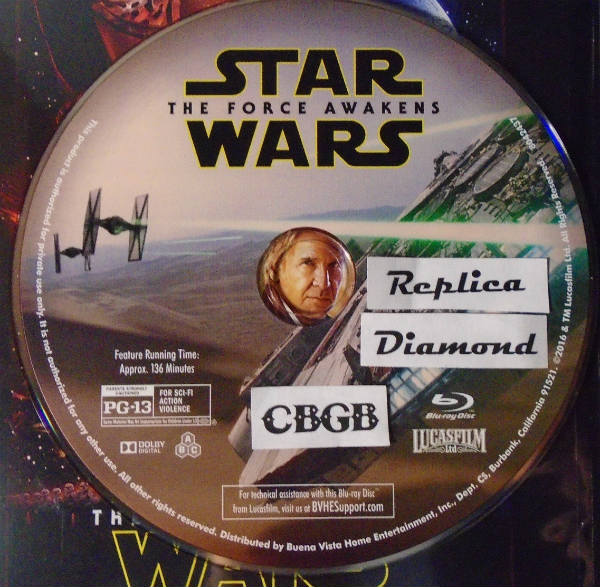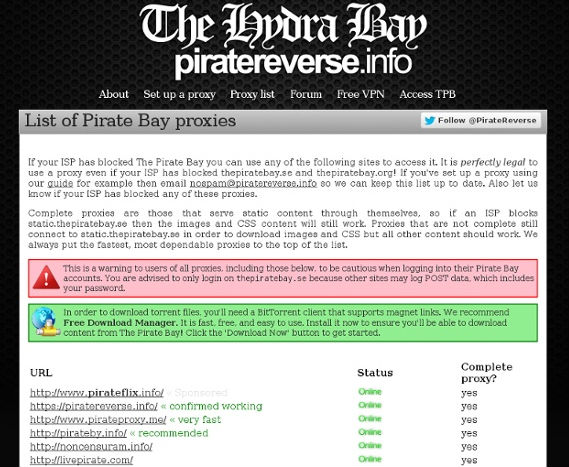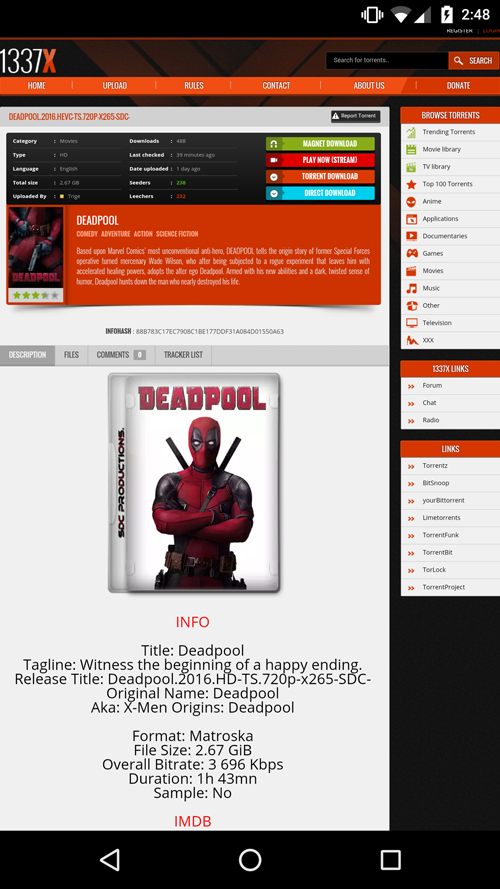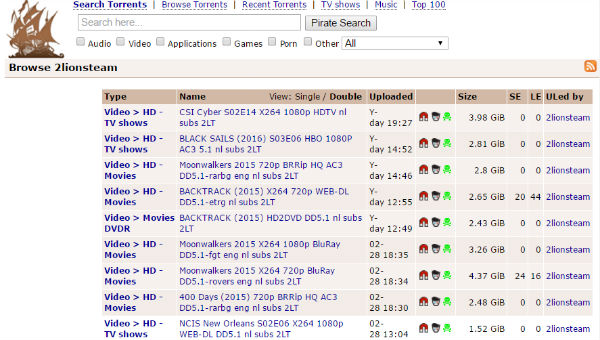Internet Archive Seeks to Defend Against Wrongful Copyright Takedowns
mercredi 23 mars 2016 à 19:20 Every single day millions of takedown notices are sent by copyright holders to online services ranging from YouTube and Google to KickassTorrents. The aim is to have copyright-infringing content removed, quickly.
Every single day millions of takedown notices are sent by copyright holders to online services ranging from YouTube and Google to KickassTorrents. The aim is to have copyright-infringing content removed, quickly.
As Internet usage has grown, the volume of notices being sent has exploded and as a result the debate over DMCA takedown procedures has become a hot topic, to the point that U.S. authorities are involved once again.
Under pressure from rightsholders, on the final day of 2015 the U.S. Copyright Office launched a public consultation with the aim of assessing the costs and burdens of the notice-and-takedown process on copyright owners, online service providers, and the general public.
As a free and public repository of a wide range of media (26 petabytes overall), the Internet Archive has a keen interest in how U.S. copyright law is shaped. In its just-published submission to the Copyright Office the Archive is quite clear – without the Safe Harbor provisions of the DMCA its valuable work would become impossible.
The certainty of Safe Harbor
“As we move increasingly towards a world where human knowledge is stored digitally, we are likely to see more libraries playing the role of host and curator of content posted by users. As such, it is important to understand how library interests intersect with the DMCA safe harbors and to ensure that libraries continue to enjoy the protection of these safe harbors in the future,” the Archive writes.
With some reservations the Archive believes that the DMCA and its system of shared responsibility is “working well” and should not be significantly overhauled. It notes that as a curator of everything from feature length films, old radio programs and cylinder recordings, to pre-1964 architectural trade catalogs, house plan books, and technical building guides, the Archive deals with an almost unprecedented range of material. That is only possible due to the “important certainty” offered by the DMCA.
“Without the protection of the DMCA safe harbors, we might not be able to host collections like these — despite the fact that no one has complained about the vast majority of the materials,” the Archive warns.
‘Notice and Staydown’ will chill free speech and fair use
While acknowledging that burdens are felt on both sides, with copyright holders keen to have content taken down and third-party organizations expected to respond swiftly in doing so, the Archive expresses concern over proposals for a “notice and staydown” system in which content that has been taken down once must never reappear again.
“The DMCA’s express provision that service providers have no affirmative duty to monitor for infringing activity remains an extremely important safeguard both for free speech and for the continuation of traditional library activities in the digital age,” the Archive says.
In its submission the Archive goes to some lengths to highlight differences between those engaging in commercial piracy and those who seek to preserve and share cultural heritage. As a result the context in which a user posts content online should be considered before attempting to determine whether an infringement has taken place. This, the organization says, poses problems for the ‘staydown’ demands gaining momentum with copyright holders.
“This is why proposals for ‘notice and staydown,’ which would appear to require platforms to use automated processes to make sure certain materials are never again able to be posted to the internet — regardless of context — threaten to chill legitimate speech and fair uses of materials,” the organization warns.
Interestingly the Internet Archive cites the Library Bill of Rights, which encourages libraries to “challenge censorship in the fulfillment of their responsibility to provide information and enlightenment.” A ‘notice and staydown’ regime would violate these fundamental principles, the Archive says.
Reducing erroneous, sloppy and cynical takedowns
While warning against changes to the law that could increase non-profit service providers’ liability for infringing content, the Archive has some suggestions as to how the DMCA could protect against improper takedown notices.
Noting that incomplete and/or erroneous notices are received by the organization every week, the Archive concludes that the major culprits are agents of major studios and publishers. Over the years their notices have demanded the takedown of public domain works such as Jane Eyre, Sense and Sensibility, Bram Stoker’s Dracula and Moby Dick, while ‘dumb’ keyword matching continues to claim innocent victims.
“For example, we received a takedown notice regarding an old Salem cigarette commercial based on the term ‘Salem’ which is also the title of a major television series. Similar keyword misidentifications frequently show up as “matches” for music, concerts, home movies, and public domain books,” the Archive explains.
“We are deeply concerned that automated filtering could lead to taking down many materials that are being used in reasonable, legitimate and legally protected ways — especially when the underlying purpose of the complaint is not copyright related but rather an attempt to silence critical speech.”
To this end the Archive is calling for a tweak to the DMCA which would allow providers to leave content up as long as they have a genuine belief that the takedown notice they have received is erroneous.
“It might make sense to create a provision in the law that would grant the service provider the ability to refuse to take material down when they have a reasonable, good faith belief that the material identified in a DMCA notice is non-infringing,” the Archive writes.
“For example, if a work appears to be in the public domain, or if the use of the material appears to be a fair use, then the service provider could refuse to take the material down without risking the imposition of statutory damages.”
The Internet Archive’s submission (full text here) is an excellent example of what is at stake in respect of possible amendments to the DMCA. While the fight between copyright holders and hardcore pirates might be the key issue, the battle has the potential to wreak havoc elsewhere and the Internet Archive and similar groups are desperate to avoid the crossfire.
Source: TF, for the latest info on copyright, file-sharing, torrent sites and ANONYMOUS VPN services.
 After becoming one of the top grossing movies of all time in theaters, Star Wars: The Force Awakens is now gearing up for its home entertainment releases.
After becoming one of the top grossing movies of all time in theaters, Star Wars: The Force Awakens is now gearing up for its home entertainment releases. 

 During the summer of 2014, City of London Police
During the summer of 2014, City of London Police 



 Dutch anti-piracy outfit BREIN has been very active recently, targeting various release groups that frequent popular torrent sites.
Dutch anti-piracy outfit BREIN has been very active recently, targeting various release groups that frequent popular torrent sites. 